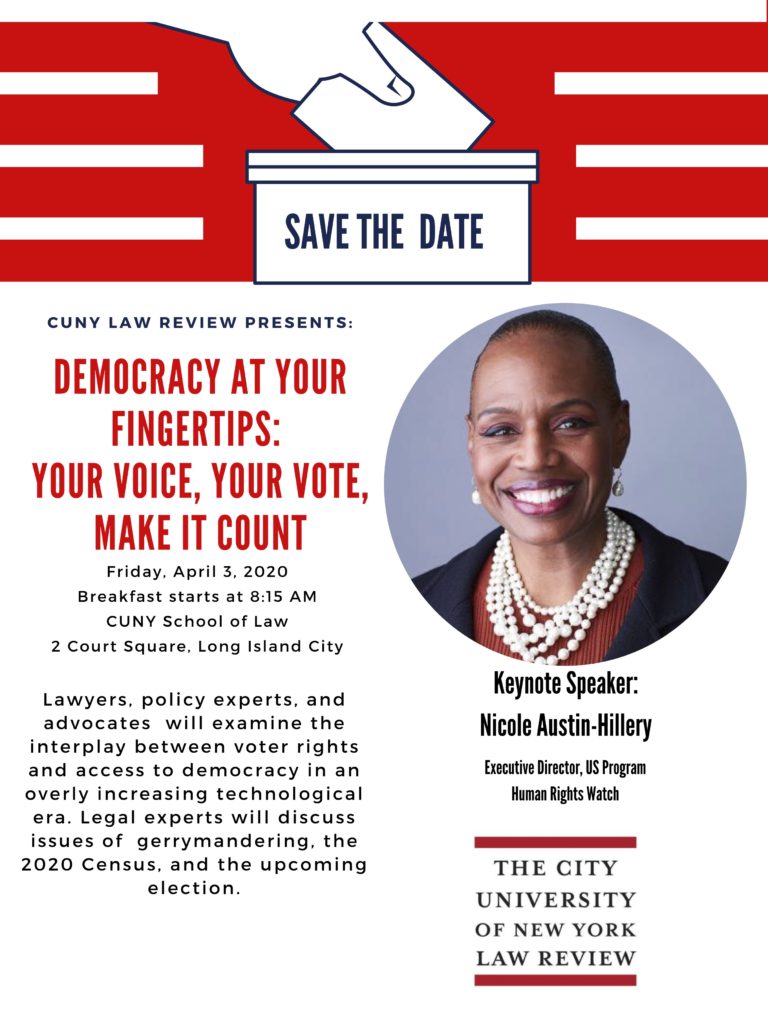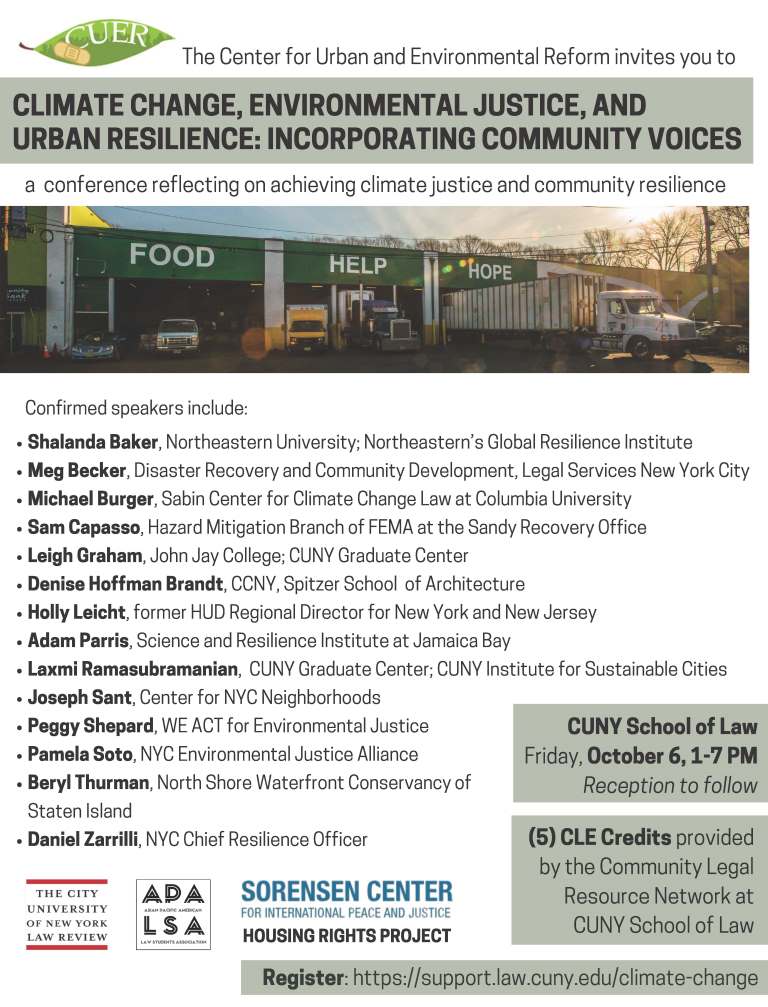On April 3, 2020, the CUNY Law Review (CUNYLR) will host its Spring Symposium at CUNY School of Law in Long Island City. The Symposium is an opportunity for an interdisciplinary gathering of legal scholars, practitioners, and community advocates to engage in dialogue on contemporary legal issues.
At its conception, voting power in the United States of America was exclusively reserved for educated white men who owned property. A century of progress, where communities that were barred from suffrage saw gains in their access to the ballot box, continues to be threatened by concerted efforts to deny them their right to vote.
As such, this year CUNYLR will examine the interplay between voter rights, technology, and democracy, specifically on the issues of gerrymandering, the 2020 Census, and the upcoming election. Our goal is to raise awareness about these issues and develop innovative solutions to address the disenfranchisement of marginalized communities. We will use the theme of accessibility to ground our discussion, focusing on how marginalized communities can continue to gain access to the ballot and ensure that their rights are not stripped by unjust laws and policies. This theme will evolve through the lens of three different panels:
2020 Census and Counting Communities of Color
The U.S. Constitution requires a Census every ten years. The Census determines the number of congressional seats per district, and the data collected is then used to allocate federal funds for services that include Medicaid, SNAP, and Head Starts. Needless to say, ensuring that there is an accurate count is important, as an undercount can have dire consequences on communities of color. This panel will focus on the recent litigation surrounding the citizenship question on the 2020 Census, and other relevant laws and policies. Panelists will explore strategies and policies to ensure that every person is counted in the upcoming census regardless of their background.
Voter Suppression & Language Access for the Ballot
Voting is the language of American democracy, yet there continues to be barriers to voting such as long lines at polling sites, voter ID requirements, broken voting machines, and even legislation aimed at keeping formerly incarcerated individuals from exercising their rights to vote. This panel will focus on raising these issues and discussing policies that will combat voter suppression in America, particularly in communities of color. Panelists are also encouraged to discuss the Ranked Choice Voting or Instant Run-Off Voting and how this will impact election results in the years to come.
Tech & Democracy
Almost every aspect of our lives is shaped by digital technology and its immense efficiency. Yet in one vital area – the election of our political representatives – we still use pencil and paper, and for far too long, we have counted each ballot by hand. Following the controversial Bush v. Gore election, the voting process evolved. Now, voting does not simply rely on hand-counted paper ballots, but also on other innovative technologies such as electronic voting machines, punch-card voting machines, and more. Americans deserve to feel confident that our votes are accurately counted and protected.
Our final panel is an opportunity to look at how emerging technology affects the integrity of elections and the efforts to ensure the fairness and accuracy of poll numbers. Panelists are encouraged to weigh the pros and cons of using technology in the voting process, and whether this has increased benefits and access for voters across various communities.
For further information, please contact the Special Events Editor, Mirian Albert (mirian.albert@live.law.cuny.edu) or Community Engagement Editor, Christina Das (christina.das@live.law.cuny.edu).


